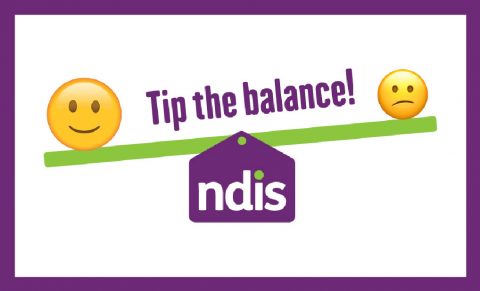Sarah’s tip the balance story

The reviewer would then advise the participant on who they need to see for example a speech therapist for an IPAD to be funded. The participant makes an appointment to see a speech therapist, the speech therapist provides information for the participant to have an IPAD funded, the participant sends the information to the NDIA and the reviewer looks at it. The reviewer asks the participant for their view and opinion and the reviewer gives their view and opinion if both sides agree and the reviewer is happy with the information the participant agrees then their IPAD is then funded and the participant is then contacted as to how much they will be allocated for their IPAD. The NDIS is not complying with the UNCRPD and participants are not given any choice except to go to the Administrative Appeals Tribunal if they are not happy with the decision. if participants were more involved in decision making this would make things a lot easier and all decisions made would be supported decisions and collaborative decisions. Many participants will not self-manage their NDIS funding as it is not the same as to what is was under ADHC. There are stories of many people who self-manage their NDIS funding and are funded for things that other people are not able to use their NDIS funding for. Have heard of people who have used their NDIS funding to go to Melbourne, New Zealand, Orthotics, IPADS, Camping, Conferences etc who are self-managing their NDIS package and participants who are plan-managed are not getting the same flexibility as people who are self-managed. If you fund one person for something you can’t not fund everyone else. The NDIS is about fairness, equity and equality not favoring one person over another. If someone can get an IPAD funded that should be available for everyone else to use their NDIS funding for IPAD. People are fighting for their rights because the NDIS is not fair and some people have more flexibility than others whether you are self-managed or plan-managed
